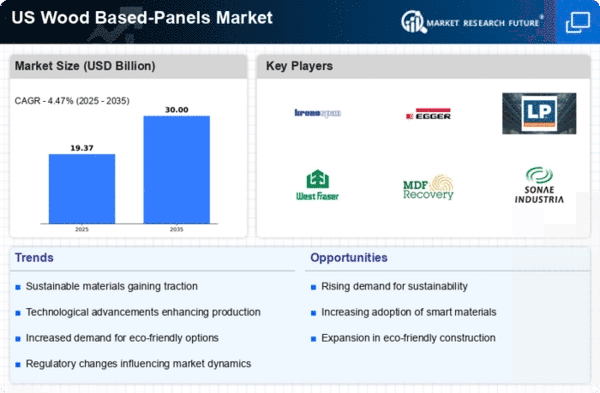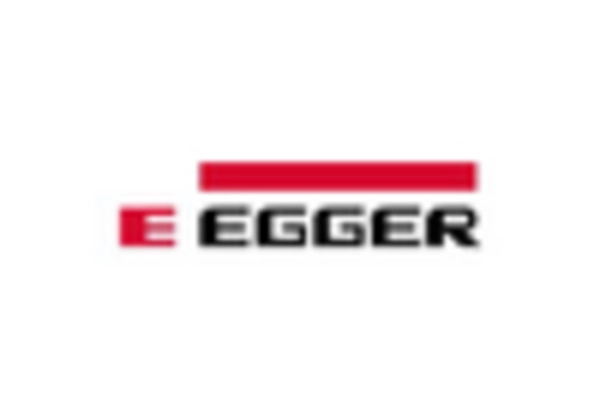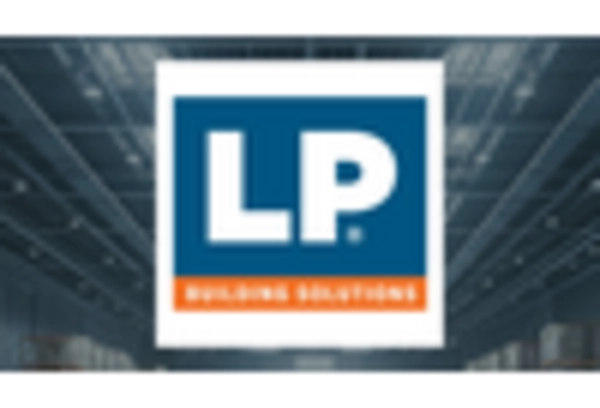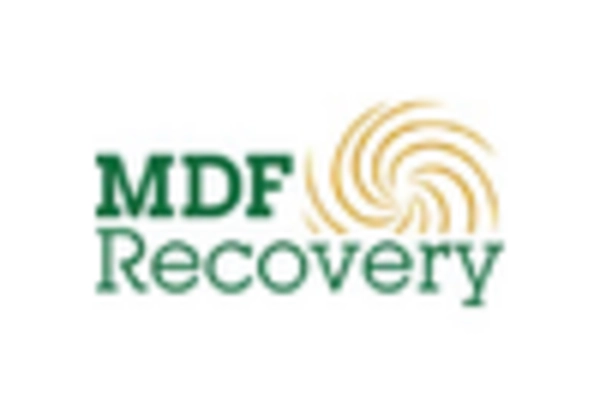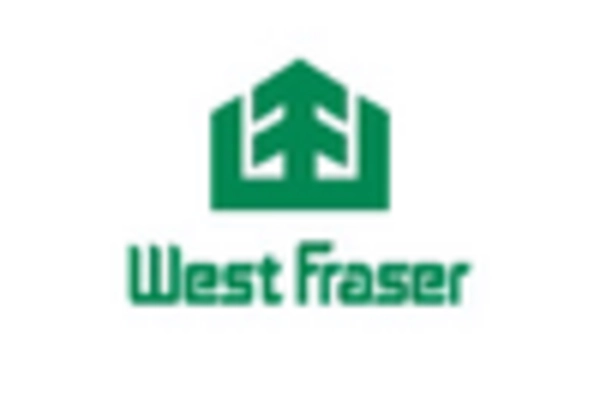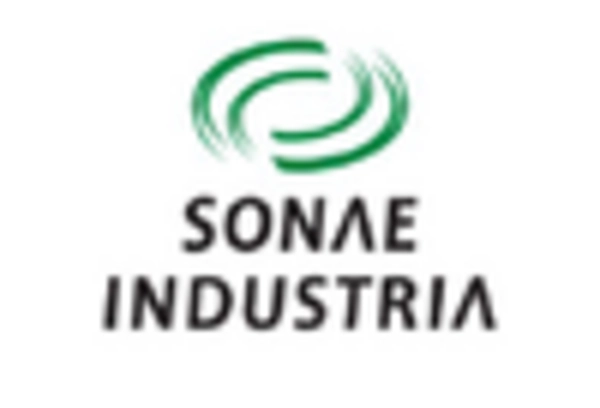Rising Construction Activities
The wood based-panels market is experiencing a surge in demand due to increasing construction activities across the United States. The construction sector is projected to grow at a CAGR of approximately 5% from 2025 to 2030, driven by both residential and commercial projects. This growth is likely to enhance the consumption of wood based-panels, which are favored for their versatility and aesthetic appeal. As builders and architects increasingly opt for sustainable materials, wood based-panels are becoming a preferred choice, contributing to the overall expansion of the market. Furthermore, the trend towards open floor plans in modern architecture is expected to further boost the demand for these panels, as they provide both structural integrity and design flexibility.
Innovations in Product Development
Innovations in product development are playing a crucial role in shaping the wood based-panels market. Manufacturers are increasingly investing in research and development to create advanced products that meet the evolving needs of consumers. For instance, the introduction of engineered wood products, such as cross-laminated timber and oriented strand board, has expanded the application range of wood based-panels. These innovations not only enhance the performance characteristics of the panels but also align with the growing consumer preference for sustainable building materials. The market is witnessing a shift towards lightweight, high-strength panels that can be used in various applications, from furniture to construction, thereby driving growth in the wood based-panels market.
Growth in DIY and Home Renovation Projects
The wood based-panels market is growing due to an increase in DIY and home renovation projects. As homeowners seek to personalize their living spaces, the demand for versatile and easy-to-use wood based-panels is on the rise. The DIY market in the United States is projected to reach $450 billion by 2026, with wood based-panels playing a significant role in various projects, from cabinetry to wall paneling. This trend is further fueled by the availability of online resources and tutorials, making it easier for consumers to undertake their own renovations. Consequently, the wood based-panels market is likely to benefit from this growing interest in home improvement, as consumers increasingly turn to these materials for their projects.
Increased Demand for Eco-Friendly Products
The wood based-panels market is benefiting from a heightened demand for eco-friendly products. As consumers become more environmentally conscious, there is a noticeable shift towards sustainable building materials. Wood based-panels, particularly those sourced from responsibly managed forests, are perceived as a greener alternative to synthetic materials. This trend is supported by various studies indicating that wood products can have a lower carbon footprint compared to their alternatives. In fact, the market for eco-friendly wood based-panels is expected to grow by approximately 7% annually, reflecting the increasing consumer preference for sustainable options. This shift not only enhances the market's appeal but also encourages manufacturers to adopt sustainable practices in their production processes.
Regulatory Support for Sustainable Practices
Regulatory support for sustainable practices is emerging as a key driver for the wood based-panels market. Various state and federal initiatives are encouraging the use of sustainable materials in construction and manufacturing. For instance, building codes are increasingly favoring the use of wood based-panels that meet specific environmental standards. This regulatory landscape is likely to create a favorable environment for manufacturers, as compliance with these standards can enhance market competitiveness. Additionally, incentives for using sustainable materials are expected to further stimulate demand for wood based-panels. As regulations evolve, the market is poised to benefit from increased adoption of eco-friendly practices, thereby supporting its growth.


